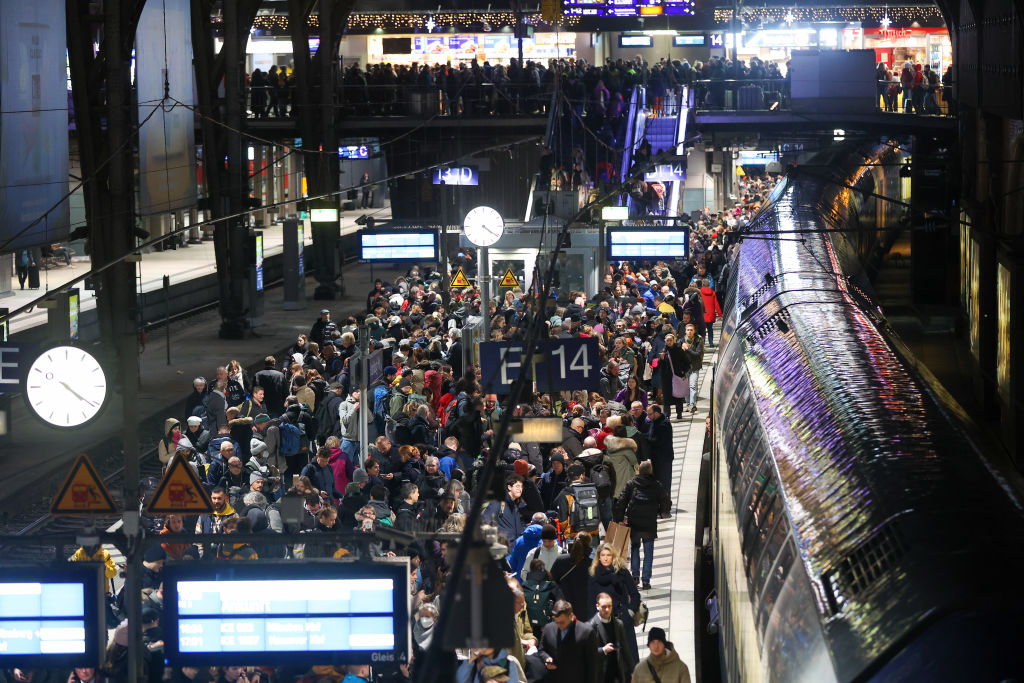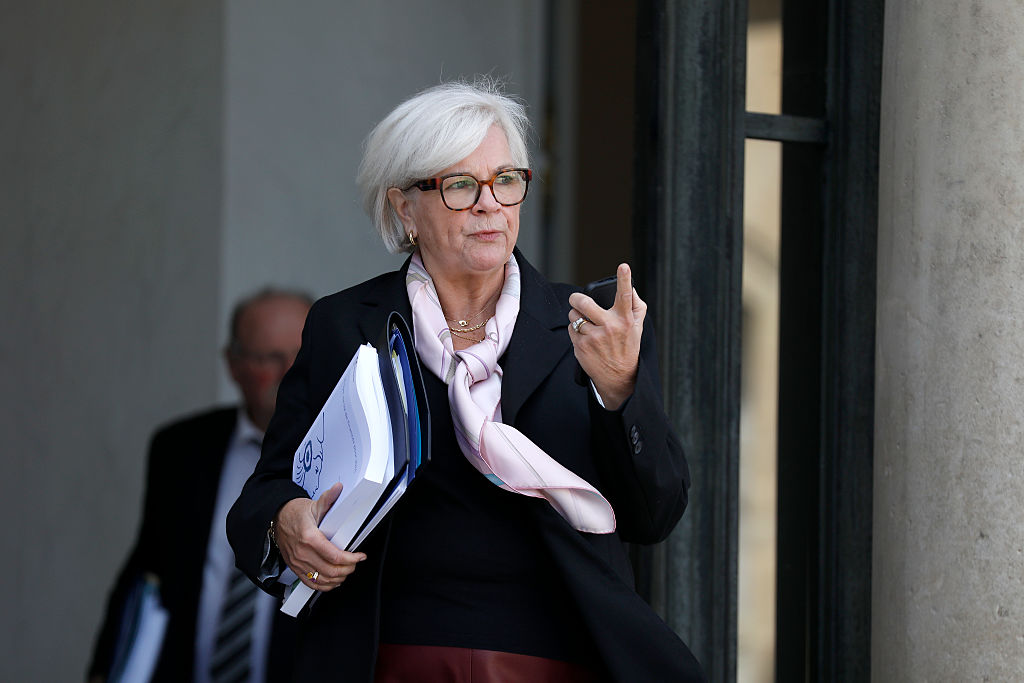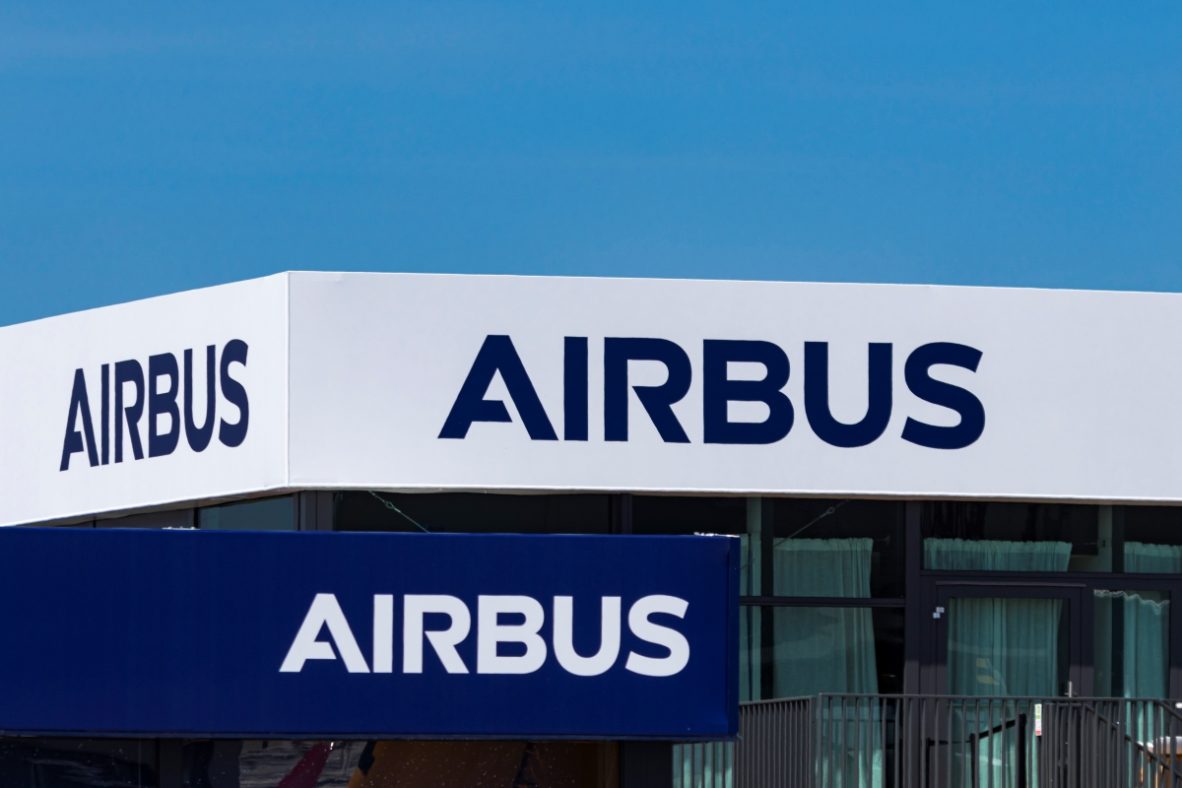Berlin sets cautious targets for troubled Deutsche Bahn railway
"Many equate the malfunctioning of the railways with the malfunctioning of our state," German Transport Minister Patrick Schnieder warned while unveiling his turnaround strategy

BERLIN – As anyone who’s caught a train through Germany in recent years knows, the Deutsche Bahn railway puts the lie to myths of German efficiency and punctuality.
Just how bad things have got was underscored when German Transport Minister Patrick Schnieder put an exceedingly modest target on his grand plans to overhaul Deutsche Bahn (DB): at least 70% of long-distance trains should run on-time by 2029, a mark still far worse than many of Germany’s neighbours.
“Carrying on as before is not an option for the railway,” Schnieder said on Monday while introducing his new pick to lead the troubled Deutsche Bahn. “The railway must become more reliable. They must be punctual, safe, and clean.”
Deutsche Bahn long-distance trains hit a record-low of 62.5% on-time performance in 2024. The railway is entirely owned by the German government.
Schnieder, a Christian Democrat who took over the ministry in the spring, noted that the government plans to spend billions of euros on railway infrastructure in the coming years. He also announced emergency programmes to address security at stations, improve cleanliness aboard Deutsche Bahn’s fleet of high-speed trains and upgrade the railway’s public communications.
The miserable state of Germany’s railways have become a source of national embarrassment and ridicule for a country that long was famed for meticulous engineering, and has become emblematic for concerns about broader decline in the country.
Schnieder acknowledged as much on Monday: “Many equate the malfunctioning of the railways with the malfunctioning of our state. I consider this to be extremely dangerous. We must demonstrate that our state is functional and also demonstrate that the railways are functional.”
When ex-German Chancellor Olaf Scholz tried to mock Britain’s railways in February for “broken tracks and bad trains” amid debates about privatisation, he was roasted by the press: British trains are much-maligned, but Germany’s are now significantly worse.
Last week, the news magazine Spiegel reported that Deutsche Bahn was apparently deliberately cancelling some trains to inflate on-time figures, since cancellations are not included in the calculations.
Underinvestment and deferred maintenance have been widely blamed over recent decades have been widely blamed for at least some of Deutsche Bahn’s problems – even though the overall German rail network has actually shrunk over the past three decades.
Chronic delays have got so bad that one senior DB executive quipped to the Sueddeutsche newspaper that “timetables are no longer calculated, just estimated” – and led Swiss railway SBB to ban some DB trains from crossing the border onto Switzerland’s rail network. Meltdowns during last year’s European Football Championship made Germany the object of global derision, and forced Deutsche Bahn to make a rare public apology.
In August, Schnieder fired Deutsche Bahn’s former CEO, Richard Lutz, whose eight-year tenure at the railway saw further decline in performance. Lutz’s hefty pay package and lucrative bonuses for top DB executives – despite the issues and losses of €1.8 billion in 2024 – also provoked criticism.
A ‘new start’
On Monday, Schnieder announced that he’d picked Evelyn Palla to replace Lutz. Palla, a longtime railway executive who previously led Austrian state railway ÖBB, currently leads Deutsche Bahn’s regional rail subsidiary, where punctuality problems have been less extreme.
She promised a “new start” for the railway and a more agile and efficient bureaucracy, squarely focused on German rail service. “Nothing will happen quickly,” she warned. “Fixing up the railroad infrastructure is a marathon, not a sprint … but we’re starting now.”
The passenger advocacy group Pro-Rail Alliance welcomed Schnieder’s apparent commitment, but said on Monday that many key details – such as precise construction plans and exact timelines – remain missing from the new strategy for DB. The group’s leader, Dirk Flege, also said stronger backing from Chancellor Friedrich Merz’s entire government is needed to actually deliver the promised turnaround. The EVG railway trade union, meanwhile, promptly vowed to fight Palla’s appointment.
Schnieder said on Monday that Deutsche Bahn’s medium-term goal should be an 80% punctuality rate – with an eventual target of reaching the 90% rate routinely delivered by smaller neighbours like Switzerland and Austria.
“That is a very, very long way off, but it must be the goal we set ourselves in the distant future,” he said.
An earlier version of this story misspelled the name of German Transport Minister Patrick Schnieder.
(vib)









